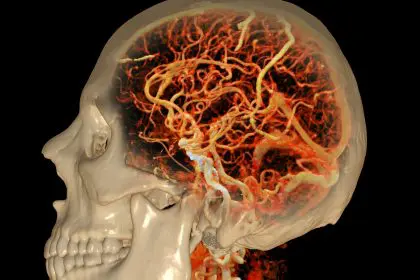Dementia is a general term for a decline in mental function so severe that it interferes with daily life. It is caused by damage to the brain and can affect memory, thinking, language, and behavior. There are many different types of dementia, but the most common is Alzheimer’s disease.
Dementia can affect anyone at any age, but it is most common in older adults. While there is no cure for dementia, there are treatments that can help manage the symptoms and improve quality of life.
If you are concerned that you or someone you know may have dementia, it is important to see a doctor for diagnosis and treatment. Here are 10 signs that you might have dementia:
1. Memory loss that disrupts daily life
This is one of the most common signs of dementia. People with dementia may forget recent events, have trouble remembering names or appointments, or have difficulty following instructions. They may also have trouble remembering how to do familiar tasks.
2. Difficulty in planning or solving problems
People with dementia may have trouble making decisions, developing and following plans, or working with numbers. They may also have trouble understanding complex instructions.
3. Difficulty completing familiar tasks
People with dementia may have trouble with tasks that they used to be able to do easily, such as cooking, driving, or managing their finances. They may also have trouble with self-care tasks, such as bathing or dressing.
4. Changes in mood
People with dementia may experience mood swings, such as becoming easily upset, anxious, or irritable. They may also withdraw from social activities or become less interested in their hobbies.
5. Confusion with time or place
People with dementia may have trouble keeping track of time or knowing where they are. They may also get lost in familiar places or have trouble finding their way home.
6. Trouble understanding visual images and spatial relationships
People with dementia may have difficulty reading maps or understanding diagrams. They may also have trouble judging distances or determining the size of objects.
7. Problems with words in speaking or writing
People with dementia may have trouble finding the right words or forming sentences. They may also repeat themselves or use the wrong word.
8. Misplacing things and losing the ability to retrace steps
People with dementia may often misplace things, such as their keys, glasses, or wallet. They may also have trouble finding things that they have misplaced.
9. Decreased or poor judgment
People with dementia may make poor decisions, such as giving away money to strangers or wearing inappropriate clothing for the weather. They may also have difficulty managing their finances or taking care of their safety.
10. Withdrawal from work or social activities
People with dementia may withdraw from work or social activities because they feel confused, overwhelmed, or embarrassed. They may also lose interest in their hobbies or activities that they used to enjoy.
If you are concerned that you or someone you know may have dementia, it is important to see a doctor. A doctor can do a physical exam, order tests, and ask questions about your medical history and symptoms. This will help them to determine if you have dementia and, if so, what type of dementia you have.
There is no cure for dementia, but there are treatments that can help manage the symptoms. These treatments may include:
- Medications: There are medications that can help improve memory, thinking, and behavior in people with dementia.
- Therapy: Therapy can help people with dementia cope with their symptoms and improve their quality of life.
- Support groups: Support groups can provide emotional support and practical help for people with dementia and their caregivers.
If you are caring for someone with dementia, there are a few things you can do to help:
- Create a safe and supportive environment.
- Help them to maintain a routine.
- Be patient and understanding.
- Encourage them to stay active and engaged.
- Seek support from other caregivers.
Dementia is a challenging condition, but there are ways to manage the symptoms and improve the quality of life for people with dementia and their caregivers.
This story was created using AI technology.















